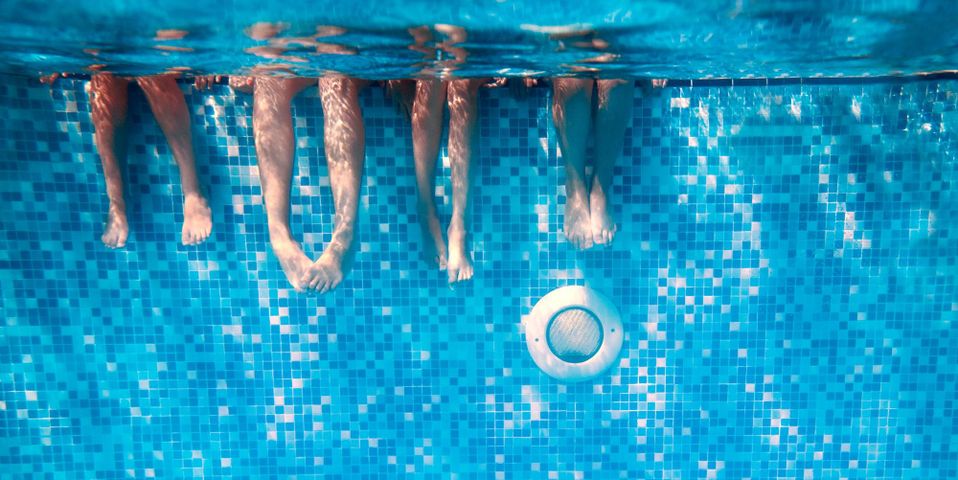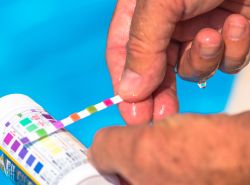A Beginner’s Guide to Pool Chemicals

Owning a swimming pool isn’t as simple as creating the structure and filling it with water. Your pool water requires a variety of chemicals to ensure it’s safe to swim in and maintain its clarity. Learn more about the pool chemicals you’ll need this summer to keep the water sanitary and address potential issues like algae overgrowth.
What to Know About Swimming Pool Chemicals
Sanitizers
Many people are familiar with pool sanitizers because they’ve heard of chlorine. This chemical helps prevent bacteria, algae, and other organisms from growing in the water. Most people add stabilized chlorine to their swimming pools in a skimmer basket or floating dispenser. It is available in tabs, sticks, and granules, and should measure between 1.0 and 3.0 parts per million.
Alkalinity Balancers
The alkalinity of your swimming pool helps regulate factors that can impact the pH level of the water. To check the values, use a test kit to sample the water weekly — the alkaline levels should be between 80 and 120 parts per million. If necessary, add an increaser to improve alkalinity or sodium bisulfate to decrease it.
pH Balancers
Pool pH measures the acidity of the water. High levels of over 7.6 can stain plumbing and pool liners. Levels below 7.4 may corrode parts of the sides of the pool or metal fixtures like lighting or railings. You can adjust pH balance by adding acids to raise the level and alkalis to lower it.
Shocks
If you have a pool party and a lot of kids spend time in the water, you may want to shock it to prevent contamination from bodily fluids. People also use shock chemicals to oxidize the water before the first use of the season and after the last use to clean the pool. Shock is a granular oxidizer or a powdered chlorine treatment that reduces chloramines or combined chlorine molecules. Only perform this treatment if the chloramine levels are greater than 0.3 parts per million.
Algaecides
The best way to prevent an algae bloom is to clean organic matter out of the pool regularly and to maintain healthy chlorine levels. However, if you notice the water is cloudy or greenish, you may not be using the right algaecide. These copper-based treatments can prevent algae growth and work with shock oxidizers to mitigate yellow or green algae strains.
If you need professional pool maintenance this summer, contact Distinctive Swimming Pools in Washington Depot, CT, to set up a schedule. This family-owned and -operated business has served Litchfield County for over 75 years with pool parts, repairs, and care. Call them at (860) 868-3622 or visit their website for information on their seasonal maintenance services.
About the Business
(3 reviews)
Have a question? Ask the experts!
Send your question


